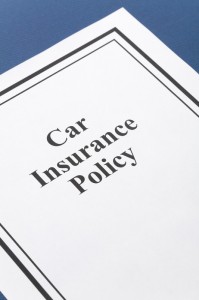Who Must Purchase Michigan No-Fault Insurance?
 A bedrock principle of Michigan’s no-fault law is that it establishes a system of mandatory auto insurance. This insurance requirement is set out in MCL 500.3101(1), which states that any “owner or registrant” of a motor vehicle that is required to be registered in Michigan must purchase Michigan no-fault insurance. But what exactly constitutes an “owner” and a “motor vehicle”?
A bedrock principle of Michigan’s no-fault law is that it establishes a system of mandatory auto insurance. This insurance requirement is set out in MCL 500.3101(1), which states that any “owner or registrant” of a motor vehicle that is required to be registered in Michigan must purchase Michigan no-fault insurance. But what exactly constitutes an “owner” and a “motor vehicle”?
Under Michigan law, there are three ways to be classified as an “owner” of a motor vehicle. MCL 500.3101(2)(h). One way is by “renting” or “having the use” of a motor vehicle under a lease or otherwise for a period of more than 30 days. Another way to qualify as an owner is by holding the “legal title” to a vehicle. (Note: This does not include people engaged in the business of leasing vehicles for greater than 30 days.) Finally, you are considered an owner if you have the “immediate right of possession” under an “installment sale contract.”
The other issue to consider is the type of vehicle at issue. Only “motor vehicles” that are “required to be registered in Michigan” need no-fault insurance. The term “motor vehicle” is defined in as “a vehicle, including a trailer, operated or designed for operation upon a public highway by power other than muscular power which has more than 2 wheels.” MCL 500.3101(2)(e).
Section 3101(2)(e) goes on to specifically exclude certain vehicles from the definition of “motor vehicles.” For example, motorcycles, mopeds, farm tractors, some “implements of husbandry,” and off-road vehicles (ORVs) are not motor vehicles under the no-fault law, and thus do not require no-fault insurance.
However, be careful: failure to possess no-fault insurance at the time of a crash can be devastating. First, MCL 500.3102(2) imposes criminal liability, specifically a misdemeanor, on those who fail to insure their vehicles. A person convicted of the misdemeanor shall be fined between $200 and $500 and/or imprisoned for up to a year. More significant, however, is the impact on the person who fails to insure their vehicle and is injured in an auto crash. Such a person is completely disqualified from receiving no-fault benefits.
We have a section of this site dedicated to explaining Michigan’s auto no-fault law, including the benefits that are associated with it, and who may (or may not) be entitled to receive those benefits. If you have additional questions, please feel free to contact a knowledgeable attorney on our Michigan auto no-fault team.
